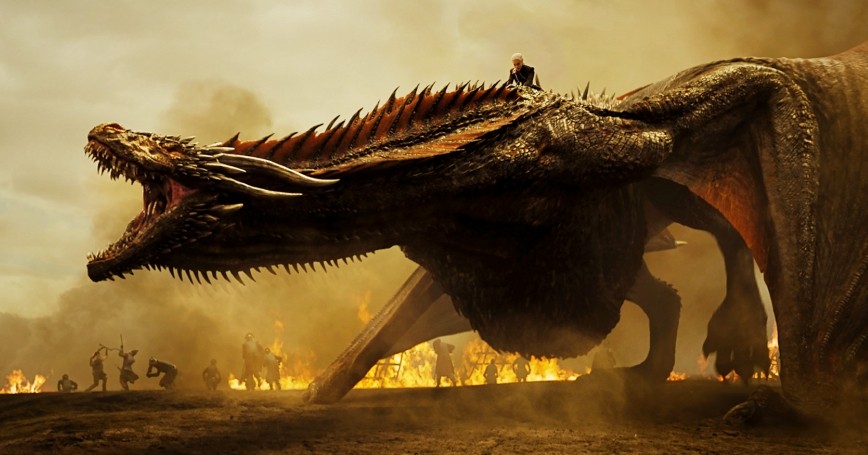We may earn money or products from the companies mentioned in this post.
Josh just posted a list on his Bernie the Flumph blog called “Twenty Things That May or May Not Be True About Orcs.” You should go read it. It’s entertaining and educational. It’s also a concept that begs to be stolen—I mean, expanded upon to include other monsters, which is exactly what I’m going to do for this week’s column. Since Josh focused on the cannon fodder of most fantasy worlds, I’m going to hit the other end of the spectrum: the mighty Dragon.
- A dragon’s horn, when blown by a war leader, will inspire unshakable courage in troops.
- A dragon’s scale may be used to determine someone’s guilt or innocence. If the accused is guilty, he cannot lift the scale.
- A dragon’s teeth, if planted in the ground, will grow into fully armed and armored warriors.
- Dragon blood is either highly hallucinogenic or capable of transporting the drinker into the other world. Whichever the case, it is highly sought after by wizards and priests and is sometimes used to induce vision quests.
- Items made on a forge lit with dragon’s fire are indestructible.
- Anyone who knows a dragon’s true name can use it to demand his pick of one item from the dragon’s treasure hoard.
- Although dragons may be temporarily disabled and their physical bodies may be destroyed through brute force, they will always return unless very elaborate (and extremely obscure) magical rituals are performed over the remains.
- Dragons don’t need to eat, sleep, or perform other basic biological functions. They are creatures of magic who are sustained by the magical energies of the world around them. Dragons often surround themselves with powerful magical artifacts because they enjoy magical auras in much the same way that most humans enjoy sunshine.
- Every dragon is associated with a constellation, and its power waxes and wanes with the astrological influence of that constellation.
- All dragons can assume human form, but when they do so they are bound by a number of magical compulsions (similar to a vampire’s inability to enter a place without an invitation) that limit their actions. These compulsions vary from dragon to dragon.
- Dragons use a form of dream magic that allows them to travel astrally and work magic far away from where their physical body is resting.
- An eclipse signals a major shift in power among dragonkind (death, betrayal, declaration of war, etc).
- Dragons were the first creatures to discover language, and they taught it to the other intelligent races.
- The dwarven race was created by a dragon long ago to build its underground lair.
- All dragons were once human wizards who managed to discover the secrets of ascending to Dragonhood. This process is more carefully hidden and difficult than the creation of the Philosopher’s Stone (which many believe is a pre-requisite of becoming a dragon).
- Dragons secretly control the world. Most human warfare and politics, not to mention magical events and “natural” disasters, are the results of the often eons-long power struggles between rival dragon factions pursuing esoteric goals that most humans couldn’t even begin to comprehend.
- Every dragon’s hoard contains at least a few artifacts that the dragon sought out because it believed them to be too powerful or dangerous for the lesser races to possess.
- Most people assume that human sacrifices made to dragons are eaten. Not true. The sacrifices are trained in warfare, espionage, and other useful skills and sent out into the world to act as the dragon’s agents.
- Dragon’s can sense a person’s destiny and often give gifts, protection, or guidance (usually through an intermediary) to those who they believe will be useful to them.
- Dragons develop a magical bond with the land where they make their homes. The countryside surrounding a dragon’s lair will take on aspects of the dragon’s personality. For example, the land around an aggressive dragon’s lair will be in a constant state of conflict and war, while the land surround the lair of a dragon who values knowledge above all else will become a center of learning. The size of the area affected is proportionate to the dragon’s power.





